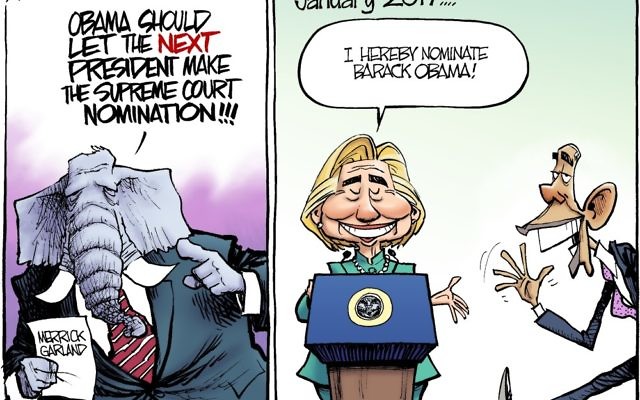Our View: Defending Liberty
Gov. Nathan Deal faces the most important decision of his administration on whether to sign or veto House Bill 757.
The Free Exercise Protection Act, a response to the legalization of same-sex marriage, passed 104-65 in the House and 37-18 in the Senate on Wednesday, March 16, finally bringing the dominant issue of the 2015-16 session of the General Assembly to the governor.
There’s no question what is at stake from the perspective of bill opponents: the liberty for all Georgians to live as equals. Thanks to the Supreme Court, marriage rights are no longer a legal question, but H.B. 757 draws a line in the red clay to say, “You will go no further.”
Despite a cleverly written passage declaring that nothing in the legislation would allow “invidious discrimination” barred under state or federal law, H.B. 757 allows people who are citizens to be treated differently as a group. That’s invidious discrimination.
By specifying state and federal law, H.B. 757 overrides local ordinances that offer the only legal protection for LGBTQ people, as well as others who might stand on the wrong side of some religious beliefs, such as single parents, divorcees and those who dare to have sex outside marriage.
H.B. 757 specifies that a faith-based organization may refuse services and deny or revoke employment to people who don’t conform to that group’s religious ideals. And it allows individuals to discriminate in the name of religion unless the government can prove a compelling interest to intervene.
The primary targets of the bill are lesbians, gay men, bisexuals, transsexuals and anyone else who falls outside society’s traditional sexual norms. It’s easy enough for those who are within those norms and who, abnormally, don’t have LGBTQ friends or family to turn their backs on people who could not marry and do not find a welcoming environment in many synagogues.
But no Jews are safe from H.B. 757. Someone battling drug addiction, trying to escape an abusive home or left homeless by unemployment could be denied vital services or shelter by a non-Jewish faith-based agency. And as a tiny religious minority, we must be hypersensitive to any legal justification for faith-based discrimination.
To be fair, rights do come into conflict, so the governor must examine the threats to religious freedom that motivated so many well-intentioned Georgians to support H.B. 757.
And Deal will find — nothing. No harm that needs to be addressed. No rights violations to be corrected. No loss of essential liberty.
Nothing but fear and perhaps hate.
We never heard any proponent of H.B. 757 cite a specific Georgia incident this bill would address. We know of no Georgia Christians — this bill’s primary supporters — being forced to violate their religious beliefs.
From a practical perspective, Deal must veto H.B. 757 to avoid business boycotts. The economic cost of H.B. 757 might not be $2 billion a year as threatened, but why pay even a few hundred million dollars for nothing?
The practical price, however, pales next to the fundamental principle of equality in liberty, opportunity and treatment under the law.
A Deal veto declares that Georgia is a place we all can be proud to live. A signature turns Georgia, whose capital is the city too busy to hate, into a state too full of hate to be busy with building a great future.




comments